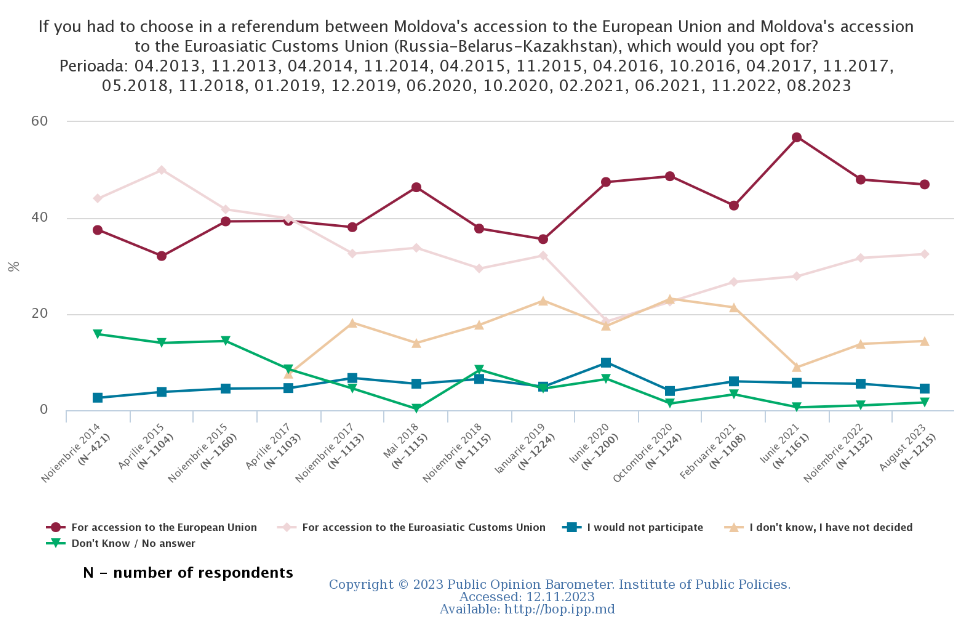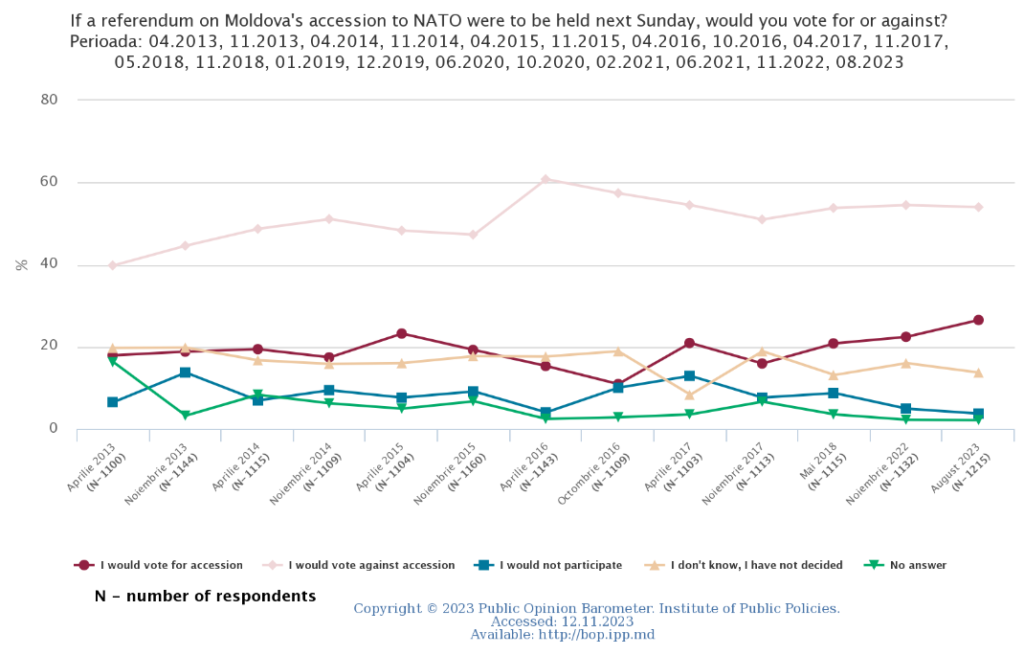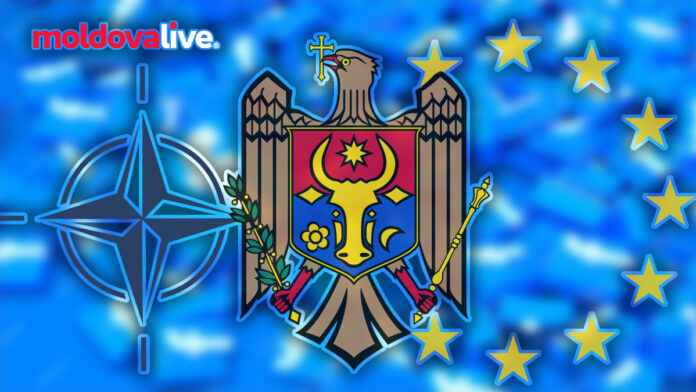On Facebook, the pro-EU discourse dominates discussions within the government, while the NATO subject is left to the discretion of the pro-Russian opposition and pro-Western parties outside the Parliament. This is revealed by online monitoring conducted by WatchDog.MD as part of a regional study.
Pro-EU Discourse in PAS
President Maia Sandu’s page is by far the most popular, garnering the highest number of interactions for pro-EU posts. Other prominent figures in the pro-EU discourse include PAS, Mihai Popșoi, Natalia Gavriliță, and Dumitru Alaiba.
The pro-EU discourse extends to extraparliamentary politicians and monitored media sources, with 85% of posts mentioning the European Union doing so in a positive context. Several factors contribute to this trend:
- The “Moldova European Assembly” took place during the monitoring period, generating numerous pro-EU posts and interactions.
- Pro-Russian actors and anti-EU sentiments prefer alternative communication channels like Telegram over Facebook.
- Pro-Russian discourse, anti-Western in nature, tends to focus more on NATO than the EU.
- Ilan Shor often uses disposable pages, creating and deleting them after placing paid ads. Such pages were not monitored and are not reflected in the statistics.
Support for EU accession is also reflected in polls, with the majority of respondents expressing a preference for EU membership over the Customs Union/Eurasian Economic Union in a referendum.

Negative Narratives and “Пожалуйста, не НАТО!” (Please, Not NATO!)
Negative messages on Facebook, although less frequent, question not the idea of European integration but whether Moldova deserves EU membership. The criticism suggests that Moldova’s progress toward accession is due to its association with Ukraine, with European leaders tolerating corruption and incompetence in Chisinau and Kyiv to use these governments against Russia.
On the topic of NATO, the government adopts a moderate stance, emphasizing cooperation and downplaying discussions about potential membership. Smaller parties, such as CUB, outside the Parliament, engage in conversations about NATO accession targeting a narrower audience.
Interestingly, statistics indicate that NATO is more popular in Russian-language posts than in Romanian-language ones. Over 55% of Russian-language posts mentioning NATO express negative sentiments toward the Alliance.
Despite the anti-NATO discourse, polls show increasing support for NATO among the population. According to the August ’23 Barometer of Public Opinion, 26.5% would vote for Moldova’s NATO accession, rising to 33.4% in a June ’23 Watchdog.MD survey.

Interpreting the Numbers
Regarding NATO, the government and country leadership tend to avoid the subject, while polls indicate growing public openness to NATO. This suggests that the government could be more proactive in communicating the practical benefits of closer ties with NATO. Discussing NATO accession is premature and electorally risky, so the focus should be on highlighting the practical advantages of cooperation with NATO.
Regarding the EU, the situation appears positive, but there are risks. The governing party’s quasi-monopoly over the pro-European discourse is an electoral advantage but becomes problematic when the party’s popularity wanes, causing a decline in support for the EU. To avoid such situations, a diversity of parties supporting EU accession is crucial, preventing it from being associated solely with one political force.
FOR THE MOST IMPORTANT NEWS, FOLLOW US ON TWITTER!
In this pro-EU coalition, local authorities should play an increased role. Mayors consistently enjoy more public trust than central authorities and, after the November local elections, have renewed credibility. This capital should be utilized to strengthen popular support for European integration.
The longstanding issue of linguistic division in Moldova also demands attention. The vast discrepancies between Romanian and Russian language Facebook, not to mention platforms like Telegram, reflect real and dangerous social and political divides. Developing local Russian-language media is essential to offer more diversity to non-Romanian-speaking Moldovans.
This article was produced with the support of the IRI Beacon Project. The opinions expressed here are solely those of the author and do not reflect the position of IRI.


